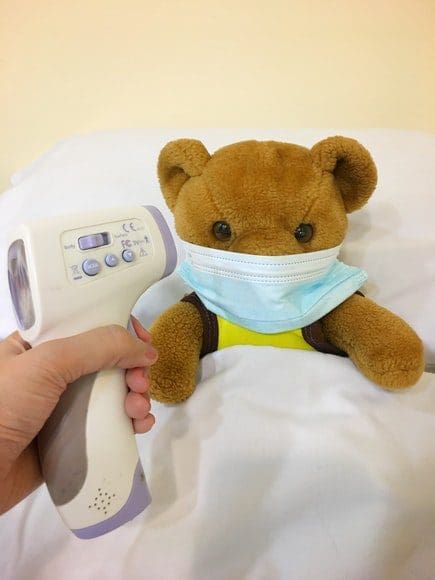How to Educate Others about World Alzheimer’s Month This September

Every September, people everywhere recognize this time as World Alzheimer’s Month. More than 6 million adults in the United States alone are affected by Alzheimer’s, making it a serious condition that many families and individuals have to contend with in their daily lives. Despite its widespread familiarity around the world, many people are still ignorant of how the disease works as well as its symptoms and treatment.
As such, it is crucial to understand the significance of raising awareness about Alzheimer’s and how we can contribute to educating others about it.
What Is Alzheimer’s?
Alzheimer’s disease profoundly impacts cognitive abilities and functions, stemming from brain nerve cell degradation and typically occurs as individuals advance in age. It typically begins with memory loss, starting as short-term lapses and progressing to long-term gaps.
As the condition advances, complex tasks, planning, and decision-making become challenging due to impaired executive functions. It also adversely impacts communication, visual perception, orientation, and emotional regulation.
The Importance of Raising Awareness for Alzheimer’s
Many may wonder why educating others about Alzheimer’s matters, asking themselves: “Why should we raise awareness for Alzheimer’s and people diagnosed with it?”
Alzheimer’s is not just a medical condition; it’s a life-altering journey for those diagnosed and their families. The World Health Organization (WHO) reports that over 50 million people live with dementia, with Alzheimer’s being the most common cause. This number is projected to triple by 2050, highlighting the urgency of spreading awareness about the disease and its impact on individuals and societies.
With this, educating others about Alzheimer’s becomes an essential and urgent task. Raising awareness can help clear misconceptions and reduce the stigma associated with the disease. When people understand that Alzheimer’s is not merely a sign of old age but a complicated neurological disorder, they are more likely to empathize with those affected and provide appropriate support.
Moreover, early diagnosis and intervention can significantly improve the quality of life for patients. By educating the public about the early signs of Alzheimer’s, we empower individuals to seek medical attention promptly, potentially slowing down the progression of the disease and helping those affected live fully functioning lives.
Simple Yet Effective Ways to Educate Others During World Alzheimer’s Month
This September, there are various ways with how we can contribute to spreading awareness of the disease. Here are just a few examples of how to go about it:
Social Media Campaigns
In the digital age, social media platforms remain one of the most effective and powerful tools for spreading awareness. Encourage others to share informative posts, personal stories, and facts about Alzheimer’s throughout September and use your platform to raise awareness for the cause. Adding dedicated hashtags like #WorldAlzheimersMonth can reach a broader audience and let others know how September is World Alzheimer’s Month.
Community Talks
Arrange informative talks in inaccessible locations such as community centers, schools, and workplaces where people can freely gather. Tailor your presentations to resonate with diverse age groups, from students to professionals and senior citizens. Use relatable examples to explain the importance of empathy and early detection of Alzheimer’s.
For instance, organizing discussions about how simple memory lapses can sometimes be early indicators of the disease and emphasizing the significance of timely medical consultation.
Memory Walks and Fundraisers
Organizing memory walks or runs can raise funds for Alzheimer’s research and organizations, and create a sense of communal togetherness. Fundraisers and walks are a popular way to gather a huge crowd all in one place and preach for a certain cause together.
Consider making custom wristbands for events like these to symbolize the participants’ commitment to the cause as they march side by side for Alzheimer’s awareness. Such events also generate financial support and foster a supportive environment where individuals affected by Alzheimer’s can share their stories, reducing isolation.
Art and Music Exhibitions
Art and music have a remarkable ability to convey emotions and bridge gaps. Host exhibitions featuring artwork and musical compositions created by individuals living with Alzheimer’s or their caregivers. These exhibits provide a unique perspective into their experiences and challenges. For instance, showcasing a gallery of paintings inspired by memories can give attendees an immersive understanding of the disease’s impact.
Personal Stories
Sharing personal stories remains one of the most poignant methods of creating awareness. By narrating the daily lives of individuals with Alzheimer’s, you bring a human dimension to the statistics.
For example, sharing the journey of a family caregiver can shed light on the emotional, financial, and psychological challenges they face. These stories, communicated through articles, videos, or social media posts, have the potential to inspire empathy and advocacy for others.
The Time for Action: Get Involved Now
To commemorate World Alzheimer’s Month, let us commit to making a difference. Educating ourselves and others about the disease’s realities can help reduce stigma, promote early detection, and foster a supportive environment for those on this challenging journey.
Whether through social media campaigns, community talks, creative exhibitions, or even accessories like custom wristbands, every effort counts in raising awareness about Alzheimer’s. Join us in celebrating World Alzheimer’s Month this September and contribute to the movement to improve the lives of individuals and families affected by this global challenge.









